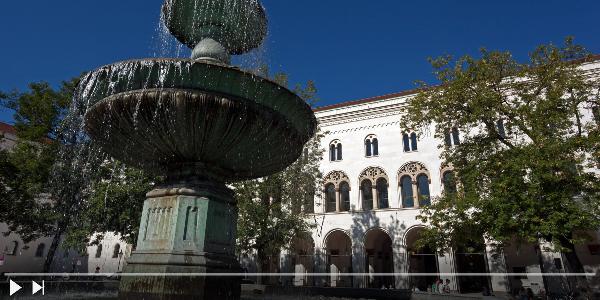These and other topics attracted a lot of attention at the Munich New Space Summit in Munich from October 23 to 25, 2024. In an environment that was heavily dominated by technology, the life science topics presented by the experts from LMU Klinikum stood out.
Prof. Dr. Markus M. Lerch, Medical Director of the LMU Clinic,Prof. Dr. Alexander Choukér, PD Dr. Judith-Irina Buchheim from the Department of Anaesthesiology and Prof. Dr. Peter zu Eulenburg from the Institute of Neuroradiology presented previous findings and challenges for the future.
Prof. Choukér said on the podium at the Science Congress Center in Garching near Munich that Europe could score points with so-called space analog facilities, in which the conditions in space, on the moon or on Mars can be simulated, especially in comparison with the USA, which is very active in space technology. Together with DLR and ESA, there are programs to test the physical and mental effects of a stay in space on humans. These facilities also include distant stations such as the one in Antarctica, where a magnetic resonance tomograph (MRT) from the LMU Klinikum is still in operation (press release). The aim here is to investigate the effects of little daylight and social isolation on the brain, says Prof. zu Eulenburg.
Among other things, questions about the human immune system are of great importance to the intensive care physicians. The immune system is significantly less flexible in space than on Earth, Dr. Buchheim confirmed. With their research such as “Stress related Immune dysfunction during long-term missions” or “establishment of a new immune test system in weightlessness” in the ISS and further studies in so-called analogous environments on Earth, a multitude of new insights can be gained into changes in the immune system during these extreme living conditions.
Prof. Lerch drew attention to the next projects that will take place from the LMU Clinic. These will focus on changes to the brain and the immune system. The focus here is on research into AI-supported diagnostic methods as well as personalized, digital medicine made possible by imaging and multi-omics analyses. These translational topics, which are relevant both in space and for patients on Earth, can contribute to a better understanding of ageing and the development of diseases. Prof. Lerch promised that the LMU Klinikum would therefore continue to increase its activities in these areas.

